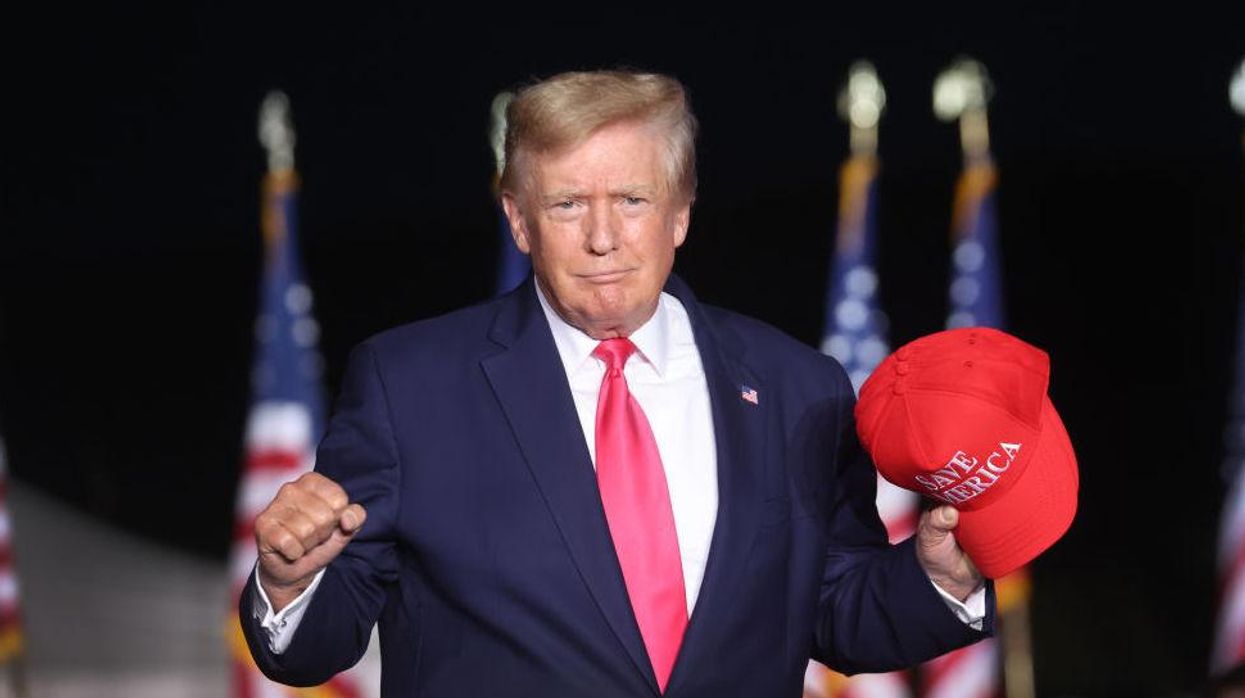
Scott Olson/Getty Images

Former federal prosecutor Andrew McCarthy explained Monday how government prosecutors may have tainted their investigation against former President Donald Trump.
On Monday, federal District Court Judge Aileen M. Cannon granted Trump's request for a special master to review documents that FBI agents seized from Mar-a-Lago.
Cannon's ruling essentially brings the Justice Department's investigation to a standstill because it bars investigators from using the seized documents for any "investigative purpose" until the special master completes the review.
The ruling said:
The Court hereby authorizes the appointment of a special master to review the seized property for personal items and documents and potentially privileged material subject to claims of attorney-client and/or executive privilege.
Furthermore, in natural conjunction with that appointment, and consistent with the value and sequence of special master procedures, the Court also temporarily enjoins the Government from reviewing and using the seized materials for investigative purposes pending completion of the special master’s review or further Court order.
Cannon explained that she ruled in Trump's favor, in part, "to ensure at least the appearance of fairness and integrity under the extraordinary circumstances presented."
Reacting to Cannon's order on Fox News, McCarthy explained the significance of the ruling, namely that investigators may have been violating Trump's constitutional rights by rifling through documents that may be subject to client-attorney or executive privilege.
McCarthy called it a "big win" for Trump because of assumptions the government made when assessing the documents.
"What happened here is the Justice Department assumed that Trump only had attorney-client privilege, that he did not have executive privilege, or at least to the limited extent that as a former president he maintains executive privilege, it can’t be asserted against the executive branch itself," McCarthy began. "It's one thing for the government to have that theory — I think it actually may be a sound theory.
"The problem is it’s not 100% settled," he continued. "So I thought it was incumbent on them to get a ruling from the court on that question before they hauled off and did what they did, which was have the privilege team go through all the seized documents assuming that Trump only had attorney-client privilege and then allowing all of the potentially executive-privileged documents to go to the prosecution team."
So what happens if government prosecutors have in their possession documents subject to privilege and have been using them to build their case against Trump?
According to McCarthy, that possibility "could taint" the entire investigation.
"If it turned out they are privileged, that could taint the prosecutors who reviewed them and it could also taint their investigation because they are now conducting an investigation," McCarthy said.
"They got these documents two weeks ago, and they've had these documents, the prosecution team has, for about a week. So they've been merrily along conducting their investigation with the agents assuming all these documents were appropriate for the investigation," he explained. "Now the judge is saying hold everything, [Trump] may have executive privilege."